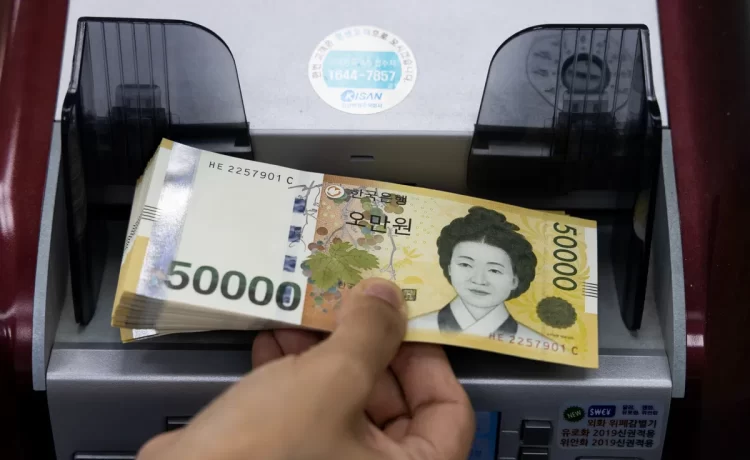[MELBOURNE/SEOUL] Asia’s trade-sensitive currencies swung around multiyear lows as the region reels from US President Donald Trump’s tariff policies that risk pushing the global economy into recession.
The Bloomberg Asia Dollar Index hovered near a record low in data going back to 2006. The Korean won declined to its lowest level since the global financial crisis, while the Australian and New Zealand dollars fell to levels not seen since March 2020 before recovering. The Indonesian rupiah sat near the weakest on record, while the offshore Chinese yuan rebounded from a record low as Beijing loosened its grip on the currency to help support the economy.
The rapid swings in Asian markets come as traders fret about tariff headlines, fearing a spiralling US-China trade war will hit global growth. Trump has vowed further measures if countries retaliate against his tariffs. South-east Asian assets have borne the brunt of the sell-off, with the Indonesian rupiah and Thai baht among the worst-performing currencies year-to-date.
“Any more poor news on trade and expect that hit to spread across the region and Asian currencies to suffer,” said Nick Twidale, chief market analyst at AT Global Markets in Sydney. “Given that many are sitting at vulnerable levels at multi-year lows, the impact could be multiplied as they fall into fresh downside ranges.”
While Vietnam, Indonesia and others have dispatched trade delegations to the US to negotiate deals and pledged to remove some of their own import barriers, Treasury Secretary Scott Bessent has said Japan will get first priority in any talks. A gauge of Asian currency volatility has jumped to the highest since Trump was elected in November.
Volatility is likely to continue as “we doubt Asian countries will secure a swift deal with Trump after initial talks look uninspiring”, said Alex Loo, a macro strategist at TD Securities in Singapore. “This Trump administration is a true believer of tariffs.”
The trade war only adds to the pressure the region was already facing. The won has been one of the worst-performing emerging market currencies since then-President Yoon Suk-yeol’s short-lived martial law attempt in early December. While a Korean court’s decision earlier this month to remove Yoon from office was considered likely to help the won, the US tariffs, along with a delay in South Korea’s inclusion into a global bond index,x are weighing on the currency.
“The delay in WGBI index inclusion could reinforce some of the negativity on the won in the near term, but we do not expect it to be sustained,” Barclays strategists, including Mitul Kotech, a wrote in a note. Risks are skewed to the currency weakening towards 1,500 per US dollar before a trade deal gives incremental support, they wrote.
In Indonesia, investors have already been fretting over President Prabowo Subianto’s populist measures and the impact on economic growth. The US is among Indonesia’s largest trading partners, and a 32 per cent tariff is set to hit key sectors such as textiles, electronics and palm oil. BLOOMBERG




